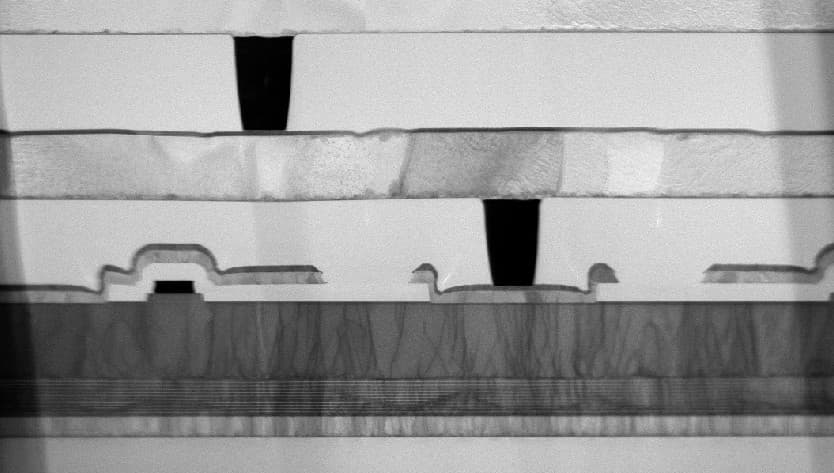
PRECINCT
Digital twins for more resilient European critical infrastructures.
This project received funding from the European Union's Horizon 2020 Research.
Following a three-year term (2021-2023), the EU's Horizon2020 research project PRECINCT (Preparedness and Resilience Enforcement for Critical INfrastructure Cascading Cyberphysical Threats) provided a deep understanding of the management and resilience of critical infrastructures such as power grids, transportation infrastructures and information and communication systems.
The consortium, with imec as one of the partners, explored interdependencies and identified risks using four living labs and use cases.
At the core of the program was a model-driven and collaborative management platform, based on digital twins, serious games' and Artificial Intelligence (AI).
For this purpose, PRECINCT brought together an ecosystem of 42 public and private actors from 12 countries to develop, implement, test, monitor, and evaluate demonstration models.
Context
As the backbone of our European cities, our economies, and our security, critical infrastructures (CIs) are increasingly faced with a variety of threats, both cyber and physical threats, natural and hybrid threats, and intentional and unintentional threats.
However, these critical infrastructures are not isolated from each other and are increasingly interdependent. Indeed, what happens in one infrastructure can have an impact on what happens in another. Understanding these interdependent dynamics and dependencies is essential to taking operational measures that ensure the security and resilience of these infrastructures, as well as their operationalization and sustainability.
Objectives
The main objective of PRECINCT was to enhance the resilience of critical infrastructures within European cities through a model-driven and collaborative management platform. This platform, supported by digital twins, serious games and AI technologies, united stakeholders around these critical infrastructures by sharing data, critical infrastructure protection models, and related new resilience services - encapsulated in digital twins. The outcome was to ensure the safety, operational stability, and sustainability of these crucial systems.
Approach
Through advanced security techniques, PRECINCT investigated how private and public actors - in the field of critical infrastructure with installation-specific approaches - can interconnect and secure installations in a future-proof manner. To achieve this goal, the project took a multifaceted approach:
- Understanding: Using state-of-the-art modeling techniques, PRECINCT gained a fundamental understanding of interdependencies, aiming to identify and differentiate risks in a variety of conditions (including configurations subject to multiple hazards).
- Improving: Digital twins were deployed to improve the accuracy and automation of threat identification, remediation, and elimination. For instance, they allowed for the further development of the aforementioned models into more detailed models within the context of specific hazards. For managing multiple risks, they enable a circular process of anticipating, preventing, and protecting events, responding promptly during events, and recovering and learning after events.
- Sustaining: 'Serious games' were used to motivate and encourage the collective pursuit of improved security. The described technical and theoretical models have limitations in identifying complex interdependent contexts and resulting vulnerabilities. A key component of the gameplay dashboard was the inclusion of a real-time resilience using the aforementioned modeling framework.
European Living Labs
Four European cities served as living labs in the project. They evaluated the resilience of critical infrastructures against cyber and physical attacks using the described platform and associated attack management tools.
'Serious games' and digital twins were used in each living lab to assess response levels and optimize decision-making processes.
- City of Antwerp: Focus on flooding, global warming, critical water infrastructure and critical transportation infrastructure.
- City of Ljubljana: Focus on bomb attacks, cyber attacks, DDoS, critical energy infrastructure, critical telecommunications infrastructure, and critical transportation infrastructure.
- City of Athens: Focus on cyber attacks, terrorism, earthquakes, and critical transportation infrastructure.
- City of Bologna: Focus on cyber-physical attacks, fake news, critical transportation infrastructure, and critical telecommunications infrastructure.
Digital twin platform by imec
Within the PRECINCT project, imec was jointly responsible for the digital twin platform, with a strong focus on the interoperability of available tools and technologies.
The main objective was to interconnect water and transportation infrastructures to support decision-making by the (CP-OPS) police and emergency services of Antwerp.
Specifically, to:
- Alert critical infrastructure operators and the coordination center to improve operational response and increase resilience.
- Modeling 'what-if' scenarios and their impact on cascading effects and resilience.
Use case: Living Lab Antwerp
The Living Lab Antwerp focused on flooding (= a natural, physical threat) with cascading effects on critical water and transportation infrastructure. The scenario was based on the Antwerp context, which is increasingly experiencing floods due to heavy rainfall. The living lab simulated a catastrophic flood, with consequences on various infrastructures such as traffic disruptions and other hindrances on roads and streets (including tunnels and underground tram lines). As a result, authorities in the simulation were given several challenges to manage: redirecting traffic, assisting stranded or injured citizens, managing traffic accidents, and plotting priority routes for emergency services.
The living lab in Antwerp contributed to the models for reference frameworks within PRECINCT, and then proceeded to map out the interdependencies between critical infrastructures in Antwerp. The Multidisciplinary Operational Emergency Command Post (CP-OPS) played a significant role in this regard. The CP-OPS coordinates actions between various emergency services and prepares situation reports, informing the relevant authorities about the event and subsequently advising them. In this pilot, the CP-OPS utilized serious games to specify threat scenarios, which could be used to define new processes for information exchange between key critical infrastructure operators.
Partners in the Living Lab Antwerp
- Vias Institute
- Was responsible for the overall coordination of the implementation and development.
- Provided expertise in the areas of safety, mobility, and traffic safety.
- Imec
- Handled the exploration and co-creation of the digital twin user applications in the four large-scale European living labs. Imec utilized a train-the-trainer approach, using its self-developed innovation management approach, the Innovatrix digital platform, and its corresponding user application canvas.
- Was jointly responsible for the design and execution of the digital twin platform.
- Handled the integration of critical infrastructure models for flood and traffic forecasting.
- KU Leuven
- Worked on a flood model of the city and on the 'nowcasting' (= real-time short-term forecasting) of precipitation.
- Water-link
- Provided expertise in the management of critical water management infrastructures.
- Provided the data for setting up the Antwerp digital twin to support the creation of the rapid warning system for citizens and critical infrastructure operators with the aim of preventing floods.
This project received funding from the [European Research Council (ERC) under the European Union's Horizon 2020 research and innovation program] [Euratom Research and Training Program 2019-2020] under grant agreement No. 101021668.
Want to know more?
Visit the project's website.












